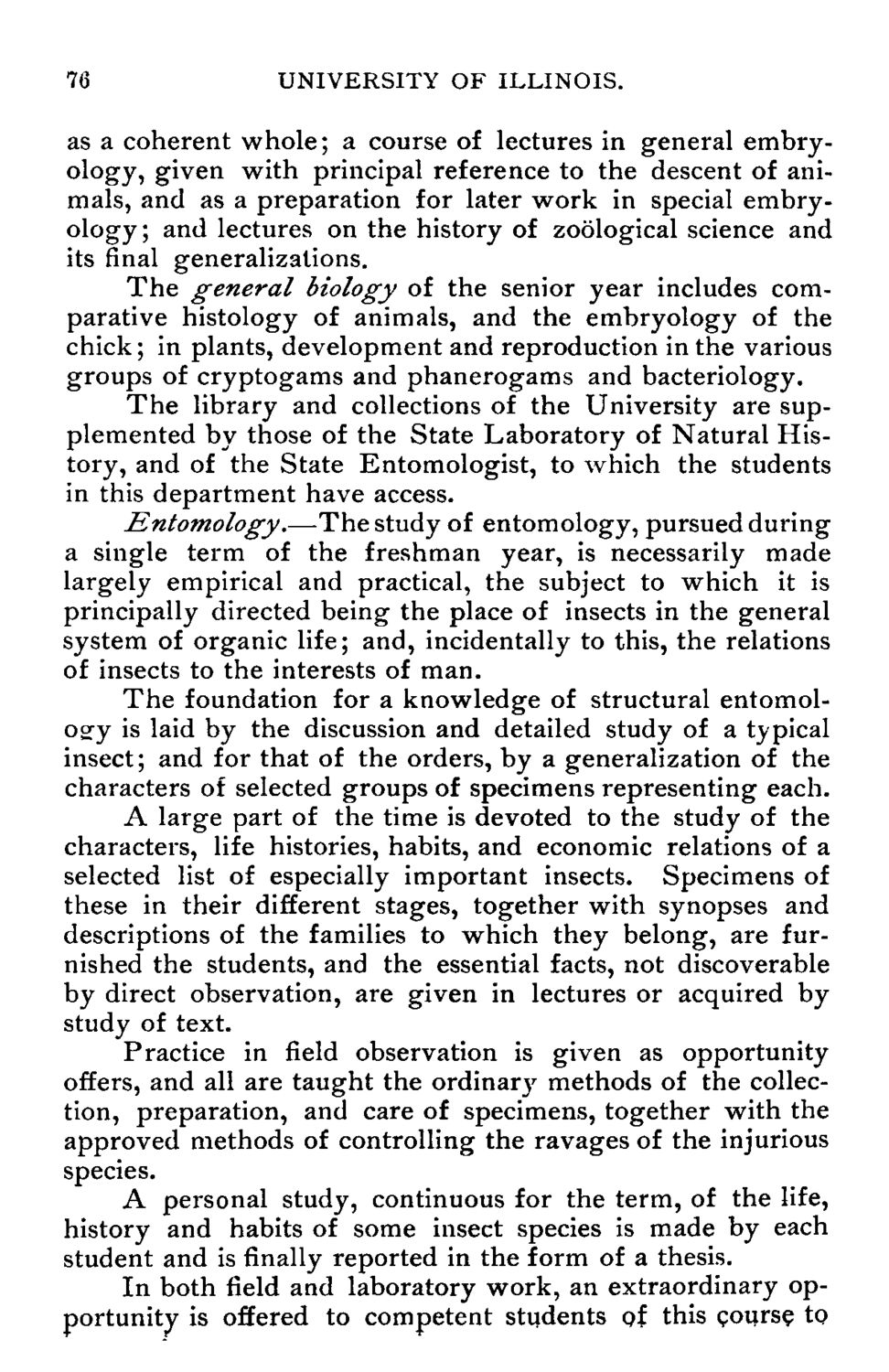| |
| |
Caption: Course Catalog - 1889-1890
This is a reduced-resolution page image for fast online browsing.

EXTRACTED TEXT FROM PAGE:
76 UNIVERSITY OF ILLINOIS. as a coherent whole; a course of lectures in general embryology, given with principal reference to the descent of animals, and as a preparation for later work in special embryology; and lectures on the history of zoological science and its final generalizations. The general biology of the senior year includes comparative histology of animals, and the embryology of the chick; in plants, development and reproduction in the various groups of cryptogams and phanerogams and bacteriology. The library and collections of the University are supplemented by those of the State Laboratory of Natural History, and of the State Entomologist, to which the students in this department have access. Entomology.—The study of entomology, pursued during a single term of the freshman year, is necessarily made largely empirical and practical, the subject to which it is principally directed being the place of insects in the general system of organic life; and, incidentally to this, the relations of insects to the interests of man. The foundation for a knowledge of structural entomology is laid by the discussion and detailed study of a typical insect; and for that of the orders, by a generalization of the characters of selected groups of specimens representing each. A large part of the time is devoted to the study of the characters, life histories, habits, and economic relations of a selected list of especially important insects. Specimens of these in their different stages, together with synopses and descriptions of the families to which they belong, are furnished the students, and the essential facts, not discoverable by direct observation, are given in lectures or acquired by study of text. Practice in field observation is given as opportunity offers, and all are taught the o r d i n a l methods of the collection, preparation, and care of specimens, together with the approved methods of controlling the ravages of the injurious species. A personal study, continuous for the term, of the life, history and habits of some insect species is made by each student and is finally reported in the form of a thesis. In both field and laboratory work, an extraordinary opportunity is offered to competent students of this course to
| |